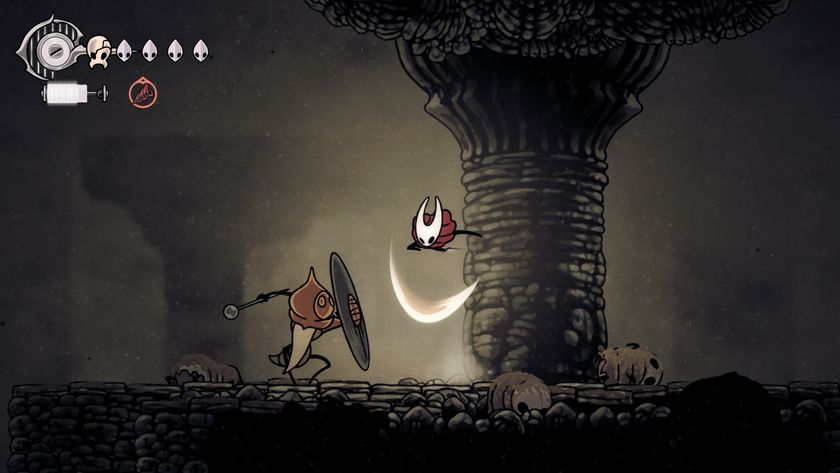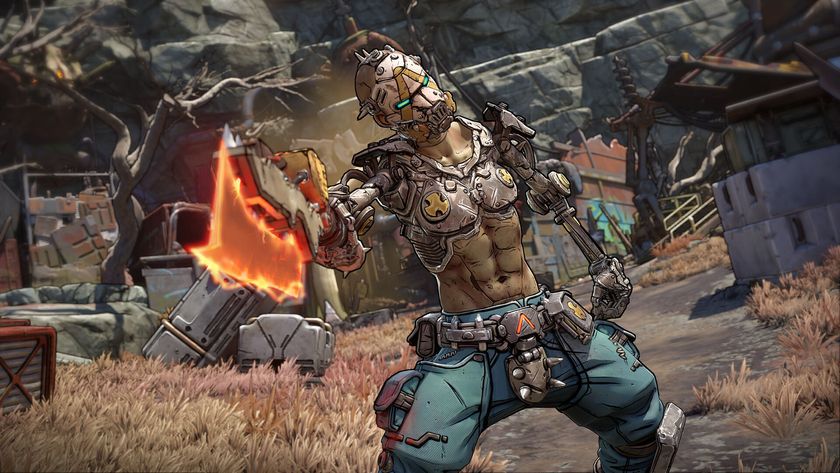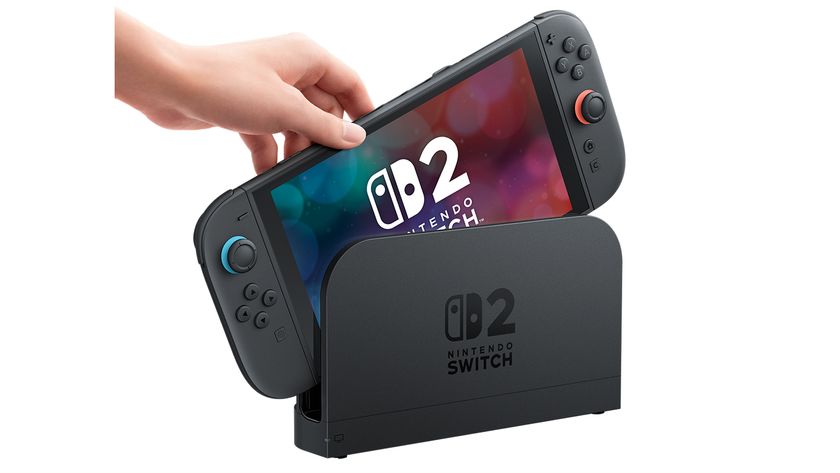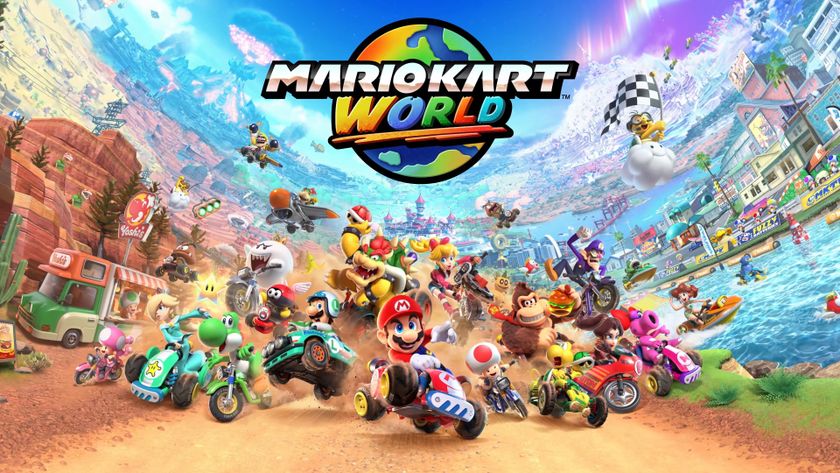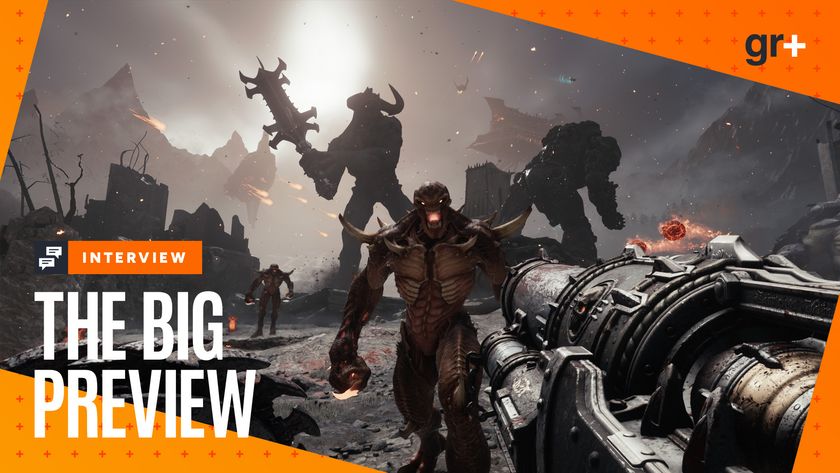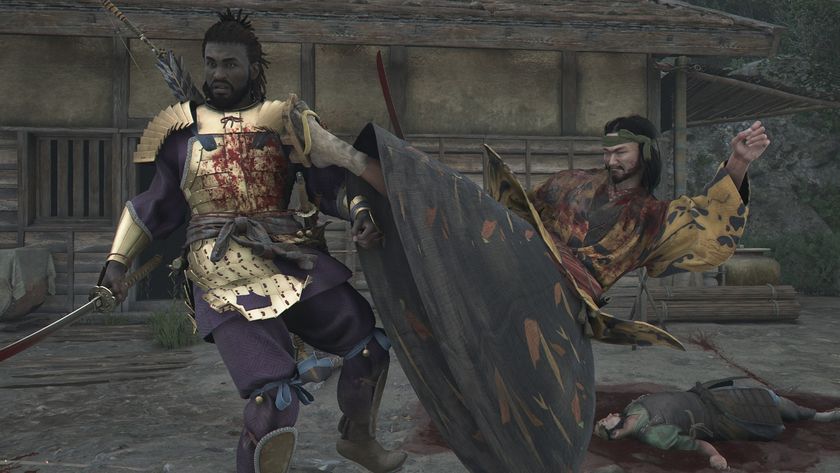PC gone mad - 7 old genres getting new life on Xbox One

They say that the place for the PC is increasingly becoming the living room - but maybe it needn't have to move. Certain PC genres have long been considered off-limits to console gaming, whether for performance or logistical reasons - but this generation seems to have sparked something of a change.
Neverwinter and The Elder Scrolls Online have begun to translate the MMORPG for a controller-wielding audience, while Smite's on its way from the heavens to prove that MOBAs can work on console. And there's far more to come - a raft of upcoming Xbox One games are taking perennially PC-only ideas and retooling them for a new group of players. Here are seven genres getting the console treatment.
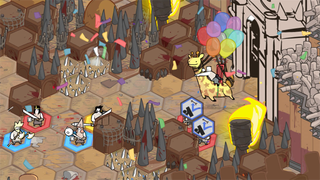
Turn-based Strategy - Game 4
Turn-based strategy is a contemplative genre, chess with the weight of the world/fantasy multiverse on its shoulders. You generally don't expect to encounter farting mushrooms, enormous, bleeding space bears and cupcake people riding spider-women.
The Behemoth hasn't even officially given its new title a, well, title, yet and it's already shaking up our expectations. A hexagon-obsessed battler, Game 4 has you performing the usual army customisation, rock-paper-scissors writ large feats, but with the style and lunacy you'd expect from the team that made Castle Crashers and BattleBlock Theatre.
The console twist: The major problem facing strategy games on console is their pace - console gamers expect some speed. Game 4 solves that problem by giving every unit a mind of its own - all of your units attack simultaneously, and automatically choose a target in their range, speeding up turns and turning movement into its own puzzle in one fell swoop.
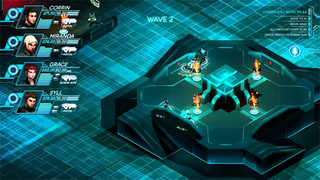
Real-time Strategy - There Came An Echo
If turn-based games struggle on console for their slow pace, the RTS gets lodged on PC for being too fast. High-level play requires you being able to flit around a wide space while simultaneously summoning up units and performing movement commands - that's just not possible on a controller with a few scant buttons to spare. Just learning a tutorial would make us throw up with nerves.
The answer is to pare down - There Came an Echo turns the RTS into a squad combat game, reducing how much you have to concentrate on, but balancing that out by making every character that much more complex. Micromanagement is both more important and easier to deal with as a result. Now let's see who's too slow.
The console twist: There Came An Echo's prime innovation is what makes it work quite so well on Xbox One - it's voice-controlled. You're shouting commands at an (occasionally uppity) group of sci-fi types, controlling movement, weapon options and targeting with brain and voice alone, avoiding that sticky issue of an under-equipped pad altogether.
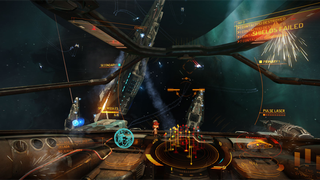
Space Simulation - Elite: Dangerous
The original Elite began as a console game of sorts, but PC's gotten the majority of space sims since the genre's '80s inception. Trading, mining and combat form the basic ebb-and-flow of a genre that's gotten, somehow, even more complex over the years. Elite: Dangerous stands at the forefront of that movement - it's imposingly enormous, and immediately intricate.
Kudos to Frontier for having the cosmic balls to bring this all to a console format, then. The Xbox One should comfortably be able to handle the 400 billion(!) star systems included, as well as the network gubbins to handle linking a universe full of players - now we just have to see how the nitty-gritty of space combat translates to controller.
The console twist: We're not entirely sure as yet, but there will definitely have to be one. On PC, Elite's cockpit commands take up a swathe of your keyboard - is it too much to hope that we'll be able to bark orders at Kinect, like it's a tiny, rectangular Mr. Sulu?
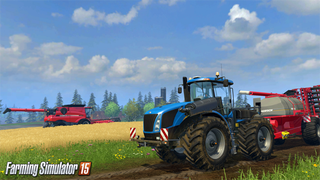
All the other, more mundane simulators - Farming Simulator 15
Trains, planes and automobiles. Also: trams, trucks, ships, forklifts and that one game where you play as Obama, I guess. PC has traditionally been the place for games that help you get in touch with what it would be like to go outside and learn a new professional skill.
NO LONGER. Xbox looks to be taking its most concerted stab at that audience with Farming Simulator 15 - it's a series we've seen before, but now the vehicles and environment look quite nice instead of resembling equipment and battlefields last seen in the Great War.
The console twist: We'll probably just spend the whole time driving into things and trying to make crop circles.
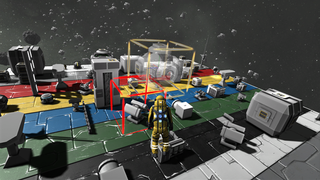
Creation Sandboxes - Space Engineers
Start with nothing, build anything. It's an appealing concept, but a tricky one to replicate without the precision of a keyboard and mouse. Of course, there was this one weird Swedish game about bricks or something on Xbox, and now that looks a little like narrow-minded thinking.
Space Engineers is a more complex prospect, a playful, low-gravity romp where you can (hypothetically, I've obviously never done this) make penis effigies out of space-boxes, that also manages to be an incredibly complex physics simulation. People have already made everything from working sci-fi mining facilities to scale models of the Titanic - we'll try and go one better (with a space penis).
The console twist: Hopefully, simplified sharing options. Part of the joy of Space Engineers is inspecting other people's incredible work - a nice, in-game upload/download system would fit that perfectly.

Card Games - Magic Duels: Origins
Two card games rule on PC. Hearthstone owns the free-to-play space, while Magic: The Gathering Online remains the premier digital version of a physical CCG. Magic Duels: Origins, oddly, sits exactly in between the two. It grabs much of Hearthstone's payment model, but uses the more complex game of Magic as its subject matter.
Which makes it all the more enticing as a console game - we're getting something new, based on an arguably superior game, but with a tried-and-tested formula to allow us not to spend too much. If the developers can nail fixing Magic's frequent starts and stops, we could have a new card game to crow about.
The console twist: It's much better-made than its PC equivalent. Anyone who's played Magic: The Gathering Online will tell you that a) it's a fantastic game, but b) it appears to have been made by someone using technology from the '80s and subsequently bee fed through a Geocities webpage generator. Duels' clean, readable interface is a huge step up.
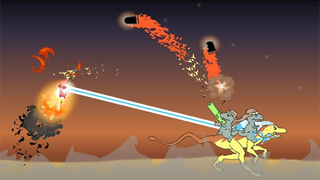
Flash Games - No Time To Explain (and Xboxie)
Every school student has, at some point, spent a lesson using their institution's computers to look at Newgrounds. It's basically a modern right of passage, like drinking hallucinogenic tea with a jungle tribe, or killing your childhood puppy. Flash games are part of the fabric of the internet, a morass of gross, terrible and occasionally magnificent ideas.
We've already had ex-Flash developers on this list - The Behemoth started out as a Newgrounds superstar - but ID@Xbox has allowed a few Flash games to make the jump themselves. No Time To Explain is the pick of the bunch, an action-platformer that has you using weapons as movement tools while a future version of yourself is noisily mutilated by various oddities.
If that's not authentic enough for you, use your Xbox One browser to find Xboxie, a site that collects together web-games playable with a console controller (albeit all in HTML5 format).
The console twist: They have to be, y'know, better. Flash games are often kernals of grand ideas, but to make the move to console platforms, they need fleshing out. There's a reason Meat Boy became Super after all.

??? - Windows 10
The next step might be even more interesting. With Windows 10's Xbox integration closing the gap between consoles and PCs even further, it's increasingly easy for developers to make games that suit both formats. That's not to mention the potential for asymmetric cross-play - Fable Legends lets you choose between Hero and Villain modes, but what if we saw PC and Xbox players pitted against each other in two different but connected games?

